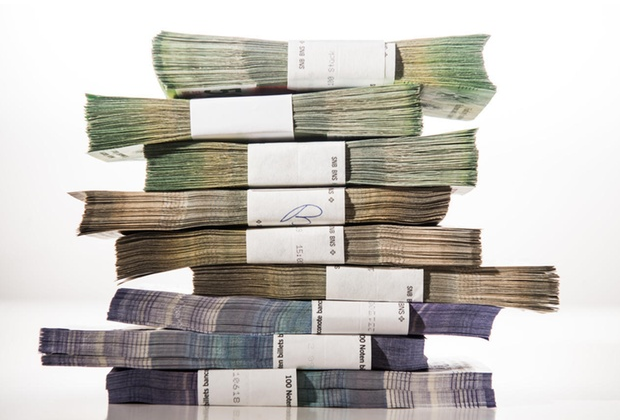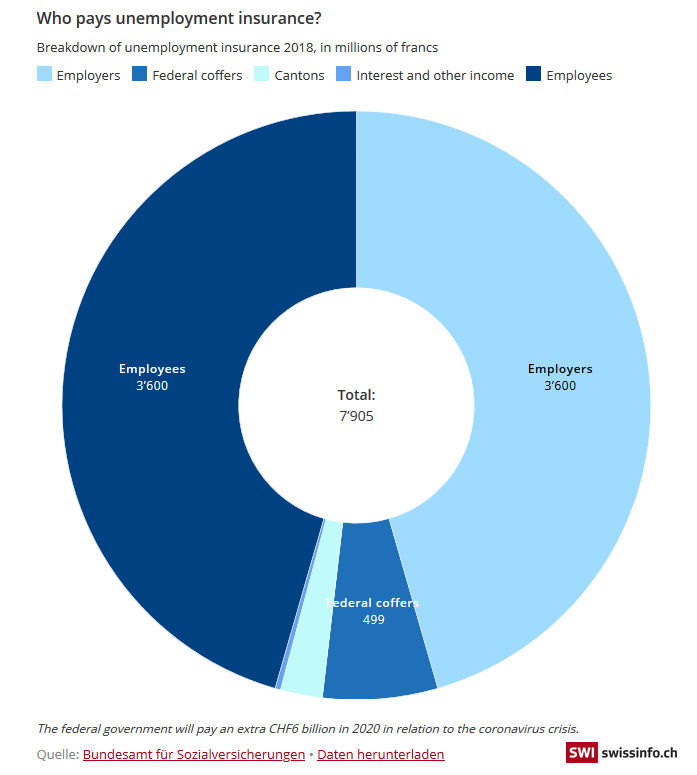|
Swiss companies that receive state bailouts during the coronavirus pandemic will still be allowed to pay dividends to shareholders. A divided parliament eventually rejected calls to ban the billions that are expected to be paid out by firms this year. During a hotly debated session on Thursday, the House of Representatives initially backed a proposal to prevent companies issuing dividends if they receive taxpayer money to cope with the pandemic. But the Senate later killed the proposal by decisively rejecting the measure. Switzerland is expected to foot a bill of around CHF6 billion ($6.2 billion) to subsidise the wages of workers who have been put on reduced hours during the Covid-19 crisis. The number of companies and workers that have applied for this insurance far outstrips any other economic crisis. “Companies will benefit from this money, so it is justifiable that they will not pay dividends in return,” said left-wing Social Democrat party politician Mattea Meyer. |
 Companies can decide for themselves how to manage their dividend payments. (© Keystone / Ti-press / Alessandro Crinari) |
| Meeting for the first time since a pandemic-enforced suspension, parliamentarians fiercely debated whether companies should be allowed to continue paying out dividends. Some said it was pointless seeing firms dishing out billions of francs while receiving state aid at the same time. But the majority in the Senate argued that it made no sense to interfere with corporate policies.
Large banks UBS and Credit Suisse have postponed half of their dividend payments until the autumn. But companies such as Swatch, cement manufacturer Lafarge-Holcim and automotive supplier Georg Fischer say they will go through with plans to pay out full dividends on time. “Swatch Group has contributed several hundred million Swiss francs to this [short-time working] insurance over the past 20 years and uses it only in extremely rare cases,” stated Swatch. “It would be counterproductive to force companies to choose between short-time work and paying dividends,” said Economics Minister Guy Parmelin. “And it would create more uncertainty in this time of crisis.” |
Who pays unemployment insurance? |
Saving jobs
All parties agreed that the short-time work insurance has prevented more job losses. The unemployment rate in April climbed to 3.3% in April, up from 2.9% in March. “In the current crisis, where 20 times as many companies have resorted to short-time work, it can be assumed that the unemployment rate would have reached 10% without this tool,” said Michael Siegenthaler from the KOF Swiss Economic Institute.
The same debate over dividends is being played out in other countries. The European Union wants to attach conditions for companies that receive taxpayer bailouts. Germany has banned firms from paying dividends if they get their cash from a state-owned bank. However, other German firms say they will continue with dividends having obtained funds from other sources.
Banks across Europe have agreed to suspend or terminate dividend payments under pressure from home governments or central banks. But in many cases, Switzerland included, it has been left to companies to decide whether it makes economic sense to fulfil the demands of shareholders or whether to hold on to funds to help see them through the crisis.
Full story here Are you the author? Previous post See more for Next postTags: Business,newsletter

























